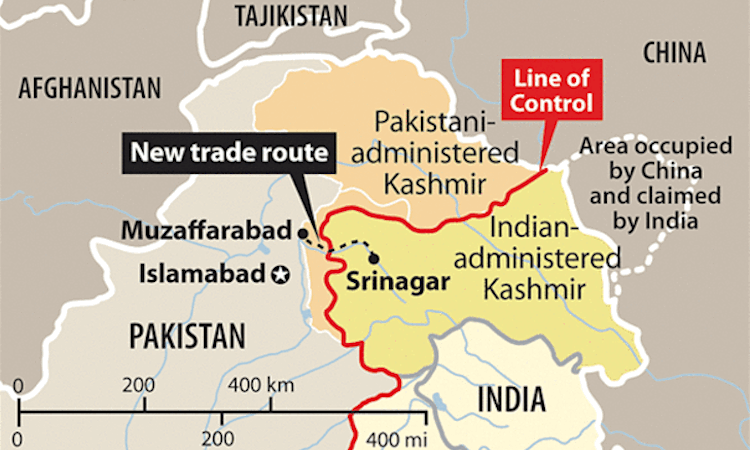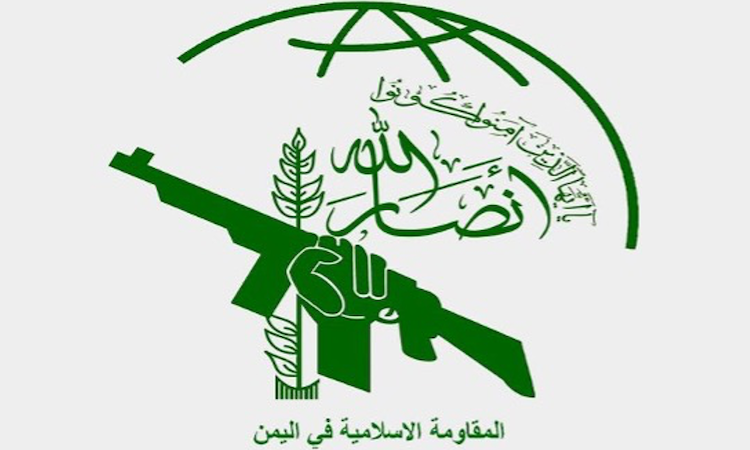On 10 April 2022, the national assembly of Pakistan voted, by a razor-thin majority of two, in favour of a motion of no confidence in the government of Imran Khan, removing him from the office of prime minister. In his place, it elected Shehbaz Sharif.
The Sharifs and the Bhuttos: Tweedledum and Tweedledee
Mr Sharif hails from one of the two main political dynasties of Pakistan, the other being the Bhuttos. He is the younger brother of former prime minister Nawaz Sharif, who was removed from office by the country’s supreme court in 2017 because of undeclared and unexplained wealth.
After being installed as the new prime minister, Mr Sharif accused Khan’s government of being – don’t laugh – “corrupt, incompetent and laid-back”.
The Sharifs and Bhuttos, who disagree with each other on almost everything else, were united in alliance after Khan’s 2018 electoral victory on a one-point programme of getting rid of his government.
“Welcome back to old Pakistan,” said Bilawal Bhutto Zardari, the leader of the opposition People’s Party of Pakistan and son of assassinated former prime minister Benazir Bhutto. “Democracy is the best revenge,” he added.
His remarks can only have one meaning: namely, that, having got rid of someone whom they regarded as an outside intruder, Pakistan is back in the vicelike rotating grip of the Sharifs and Bhuttos, who have led several civilian governments since the 1970s, though for half of Pakistan’s life since its birth in 1947 it was under open military rule.
But the plain fact is that even when Pakistan has had an apparently civilian government, it has always been under the thumb of the military, who are the real power in the land.
Imran Khan, having lost the support of a coalition ally as well as of some lawmakers from his own Pakistan Justice party, attempted to thwart the proposed no-confidence motion by dissolving parliament. However, the supreme court declared the motion for dissolution unconstitutional and ordered parliament to debate and vote on the opposition’s no-confidence motion, thus paving the way for Mr Khan to become the first Pakistani premier to be removed in such a way.
That Pakistan’s political divisions are sharper than ever could clearly be seen as Mr Sharif delivered his victory speech to a nearly half-empty chamber. Mr Khan’s 168 supporters in the 342-seat assembly had walked out in protest, leaving the remaining 174 to vote Mr Sharif into office.
It is the view of well-informed observers of the Pakistani political scene that Imran Khan could be a potent disruptive force against the newly-installed Sharif government. His term in office may have ended, but his politics may prove stronger.
Mr Khan has asserted that his removal from office was orchestrated by the USA – a message that resonates with popular anti-American sentiment. Not unexpectedly, the US government has denied any involvement in the affair.
Mr Khan’s future depends to a large extent on the new government’s ability to respond to popular grievances, which in turn depends on its ability to turn around the country’s economy, which is in an awful mess. This is not going to be easy, notwithstanding Shehbaz Sharif’s reputation as a competent administrator – a reputation he earned while chief minister of Punjab (Pakistan’s largest province).
The next election in the country is scheduled to start with the dissolution of the current parliament in 2023. However, the electoral body will have to take a decision whether or not to stage by-elections soon, following the resignation of Khan-allied MPs.
On the economic front, with global commodity prices soaring, the country is experiencing double-digit inflation, while, according to the Pakistan Bureau of Statistics, food prices have increased no less than 13 percent year-on-year as at last March. Khan had to deal with a $6bn IMF loan programme, involving unpopular measures such as increased fuel prices and decreased public subsidies.
In addition to the economic problems they now face, the Sharif brothers have been dogged by allegations of corruption, which they claim are politically motivated. Nawaz Sharif was serving a seven-year jail sentence for corruption when he received special permission to visit Britain for medical treatment in 2019 – where he has remained ever since.
It is now reported that, since the change of government in Pakistan and the installation of his younger brother as prime minister, Nawaz’s health has registered a remarkable recovery, enabling him to plan a return to Pakistan in the near future.
In the face of mounting problems, especially on the economic front, can the Bhuttos and Sharifs maintain their alliance? The two dynasties have been thrown into each other’s arms as the army seeks to reduce their influence. The military entertains deep contempt for both these parties, which are corrupt in the extreme and have stolen hundreds of billions of dollars over the years – as, indeed, have the army top brass.
Masses respond to US-backed coup
“The freedom struggle begins today against a foreign conspiracy of regime change,” tweeted Imran Khan on Sunday 10 April, just after the no-confidence vote. He asked his supporters to come out into the streets peacefully to protest against the foreign-imposed government.
The masses responded in massive number, surprising even Mr Khan. There have been huge demonstrations all across Pakistan. In the circumstances, the future of the new Sharif government looks very shaky indeed.
By the very nature of the country’s founding ideology, Pakistan’s governments have perforce rested on an alliance of the mosque and the military with the backing of US imperialism. No government which offends the military or the USA can survive for long. So the question that has to be asked is: what has Imran Khan done to fall foul of the USA and the Pakistani army?
Even before he won the 2018 election, Khan was a vocal critic of US imperialism’s so-called ‘war on terror’, particularly in Afghanistan, and of drone attacks in Pakistan. In August last year, he openly welcomed the Taliban victory in Afghanistan and the humiliating exit of the USA from that country after 20 long years of waging war against the Afghan people.
To the chagrin of US imperialism, Pakistan refused to condemn the Russian Federation in regard to the latter’s special operation in Ukraine.
Mr Khan happened to be in the Kremlin meeting Russian president Vladimir Putin just as the Russian armed forces began this operation. “We are not your slaves” was his response to a letter from the ambassador of the European Union in Islamabad demanding that Pakistan condemn Russia.
Although Pakistan has been close to China for several decades, and the Americans have just about stomached that, his attempt to construct a non-aligned and independent foreign policy sent them incandescent. Pakistan’s abstention on the United Nations general assembly resolution seeking to condemn Russia was, as far as US imperialism was concerned, a step too far.
Then there was the failure of the Khan government fully to abide by the terms of the $6bn IMF programme, which was another source of annoyance to the USA.
As regards the Pakistani military, which is reliably believed to have helped Khan to win the 2018 election, he fell out with its leadership last October after a clash with the chief of staff over who should lead the powerful ISI (Inter Services Intelligence) spy agency.
As a result, Mr Khan had earned the hostility of US imperialism, the military, the entire political class and the Pakistani media. Meanwhile, he had made no headway in dealing with the economy or in routing out corruption – the two promises on which he had been elected.
The coming days and months will show to what extent he can face and defeat his powerful opponents through the mobilisation of the masses. The scale and scope of the protests in the wake of his removal indicate that he stands a good chance of being able to expose the PPP and PML-Nawaz as stooges of US imperialism and the army high command, particularly is there are divisions within the military.
While the army top brass are pro-imperialist and against him, the vast majority of the officer corps and ordinary soldiers are likely to support Khan’s critical attitude towards US imperialism.
We wish the Pakistani masses success in foiling the regime-change operation that has been effected by US imperialism in collaboration with the top brass of the Pakistani army.













